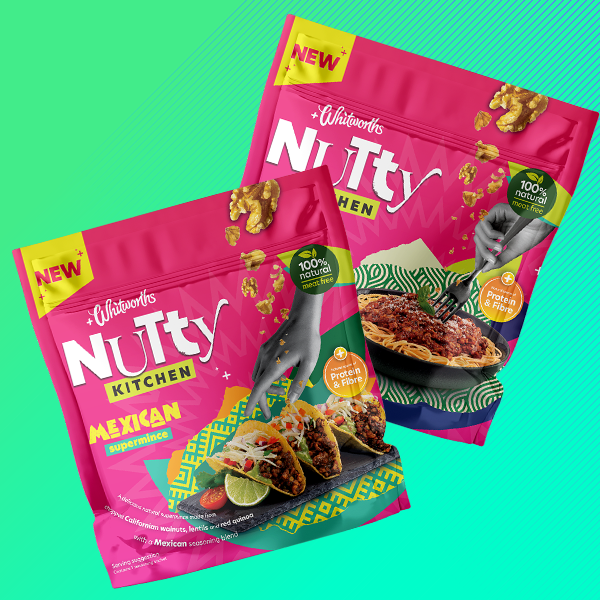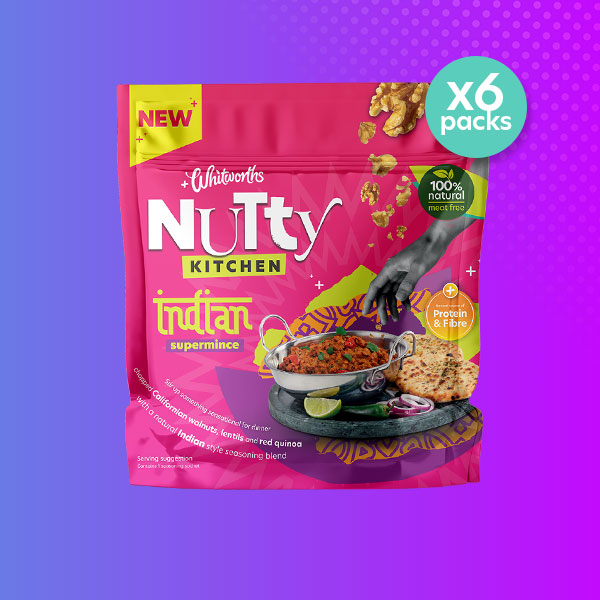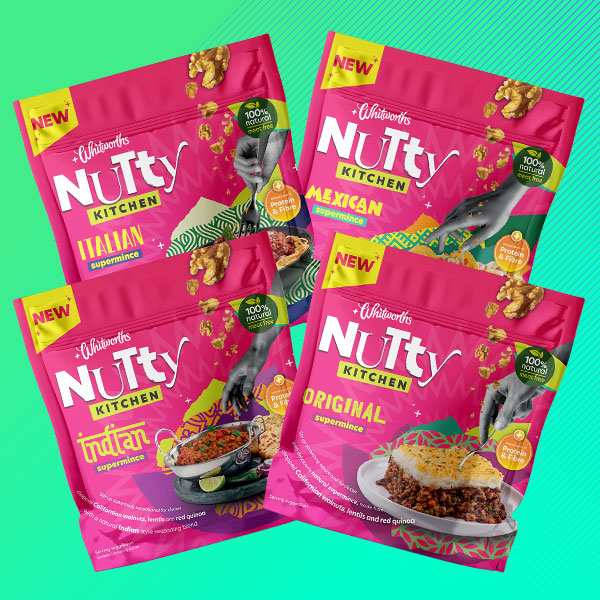Sultanas
Sultanas are a type of dried grape; they are similar to raisins, but lighter in colour and milder in flavour. In the US, they may be referred to as “golden raisins”.
What is the nutrient content of Sultanas?
A recommended serving size of sultanas is one heaped tablespoon, or around 30g:


What are the health benefits of Sultanas?
1. Rich in Antioxidants: Sultanas contain phenolic compounds (a group of metabolites derived from plants) that have antioxidant properties, which help to reduce inflammation and protect against cell damage.
2. Heart Health: The potassium content in sultanas helps support heart function, protects against heart disease, and helps regulate blood pressure.
3. Digestive Health: The fibre content in sultanas contributes to digestive health and helps prevent constipation.
Where can I find Sultanas?
Sultanas are often eaten as a snack, but can also be found in many dishes. Sultanas are often included in British sweet treats, such as fruitcake, scones, and hot cross buns, and in savoury Middle Eastern and Mediterranean dishes, like pilaffs, tagines, and stuffings.

References:
Public Health England (2016). Government Dietary
Recommendations. Available at:
https://assets.publishing.service.gov.uk/media/5a749f
ece5274a44083b82d8/government_dietary_recomme
ndations.pdf [Accessed 8 November 2024].
National Health Service (2022). 5 A Day portion sizes.
Available at:
https://www.nhs.uk/live-well/eat-well/5-a-day/portio
n-sizes/ [Accessed 10 September 2024].
Abouzeed, Y. M., Zgheel, F., Elfahem, A. A., Almagarhe,
M. S., Dhawi, A., Elbaz, A., Hiblu, M. A., Kammon, A., &
Ahmed, M. O. (2018). Identification of phenolic
compounds, antibacterial and antioxidant activities of
raisin extracts. Open veterinary journal, 8(4), 479–484.
https://doi.org/10.4314/ovj.v8i4.20 [Accessed 10
September 2024].
Anderson, J. W., & Waters, A. R. (2013). Raisin
consumption by humans: effects on glycemia and
insulinemia and cardiovascular risk factors. Journal of
food science, 78 Suppl 1, A11–A17.
https://doi.org/10.1111/1750-3841.12071 [Accessed 10
September 2024].
Olmo-Cunillera, A., Escobar-Avello, D., Pérez, A. J.,
Marhuenda-Muñoz, M., Lamuela-Raventós, R. M., &
Vallverdú-Queralt, A. (2019). Is Eating Raisins
Healthy?. Nutrients, 12(1), 54.
https://doi.org/10.3390/nu12010054 [Accessed 10
September 2024]
Written By:
Grace Williams, Head of Nutrition & Operations, myfood24.











 Back to knowledge library
Back to knowledge library